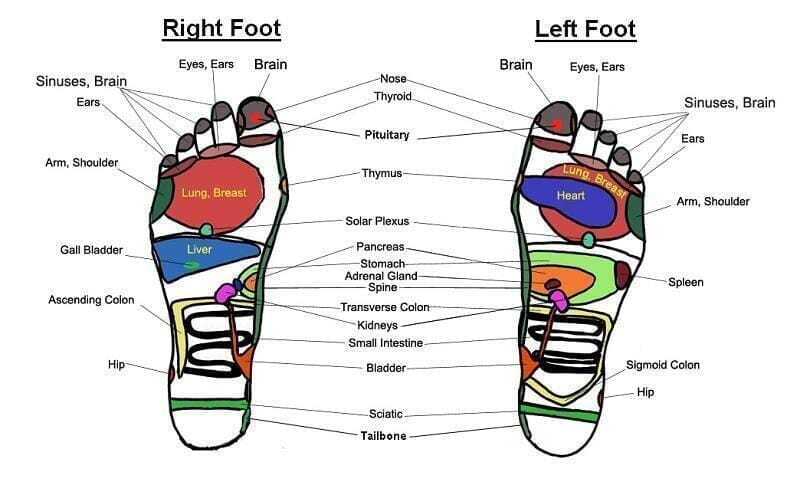Low Platelet Count In Pregnant Women | Herbal Goodness
Thrombocytopenia (low platelet count) occurs in around 8% of pregnancies. Most of these cases are mild and pose little risk to the mother or her child. There are numerous reasons for thrombocytopenia. Immune thrombocytopenia is a common cause of decreased platelets (ITP). Thrombocytopenia is caused by a decrease in platelet formation and an increase in platelet breakdown.
Moreover, most ITP pregnant women had thrombocytopenia previous to pregnancy or had other immune-mediated illnesses.
The Platelet Count-Pregnancy Link
Pregnancy increases blood plasma production. This causes hemodilution and increased blood volume. The same amount of platelet cells in more blood. Platelets per microliter of blood decrease as a result.
Your platelet count may fall due to destruction as well as natural hemodilution. The increased blood volume during pregnancy enlarges the spleen. An enlarged spleen may kill platelet cells faster when filtering blood.
Insufficient amounts of Folic acid can cause thrombocytopenia. Prenatal vitamins frequently solve this problem for American women.
Gestational thrombocytopenia is a milder form of the usual decline in blood platelets during pregnancy. It does not cause bleeding and does not increase the risk of pregnancy issues.
What is considered low platelets count in pregnancy?
A typical platelet count varies from 150,000 to 450,000/L. (platelets per microliter of blood).
The body creates more plasma during pregnancy. Thus the overall amount of platelets per volume of blood will be lower.
You'll need to be closely monitored if the number drops below 100,000-150,000/L.
Approximately 10% of pregnant women have platelet counts below 150,000/L. 75% are due to normal pregnancy changes, 21% are hypertensive disorders such preeclampsia or HELLP syndrome
In 4 percent of cases, the immune system produces antibodies that assault platelet cells.
Approximately 1% of individuals had platelet counts below 100,000/L, affecting pregnancy care.
The changes in the body cause many women to have a low platelet count during pregnancy. During pregnancy, the blood platelet count naturally drops.
In the United States, 7–12% of pregnancies have gestational thrombocytopenia.
Thrombocytopenia is the second most frequent hematologic disorder in pregnancy after anemia.
After birth, the platelet count returns to normal in women with gestational thrombocytopenia.
Thrombocytopenia can result from a significant folic acid deficiency, so take your prenatal vitamins. In addition, viruses and bacteria can cause reduced platelet counts.
Signs of Low Blood Platelets in Pregnancy
Thrombocytopenia in pregnancy often shows no signs.
However, if these happen during pregnancy, your platelet counts may be low.
- Gum bleeding (such as during flossing or teeth brushing)
- Blood in urine or feces
- bruising
- Fatigue
- Nosebleeds
- Tiny red spots under the skin.
When To See A Doc
Consult your doctor if you experience any new symptoms during your pregnancy. For example, uncontrolled bleeding demands quick medical attention.
Treatment for Low Platelet Count In Pregnant Women
Most people with low platelets need only observation. Folate and vitamin B12 supplements can help boost platelet formation.
Some healthy foods can help you gain platelets, such as:
- Chocolate
- Dark leafy greens like spinach and kale
- Beef lard and liver
- Beans with lentils
- Eggs
- Buffered breakfast cereals
- Fortified dairy substitutes
- Vitamin C-rich foods including oranges, broccoli, and red peppers
- While fatty fish like salmon are abundant in Vitamin B12 and can help increase platelet synthesis, pregnant women should avoid mercury-rich seafood.
Immune thrombocytopenia purpura (ITP) may require steroid or IV immunoglobulin (antibody) supplements. The antibodies may help your immune system not assault healthy platelets. In severe circumstances, your doctor may advise splenectomy during pregnancy.
Common Related Questions & Answers
Is it possible to prevent gestational thrombocytopenia?
No, gestational thrombocytopenia is merely an amplification of the usual platelet decline. Women who have had gestational thrombocytopenia once are more likely to get it again, but it is benign.
What causes gestational thrombocytopenia?
The changes in your body during pregnancy produce gestational thrombocytopenia. Hemodilution occurs when your body expands your blood volume. This happens when the blood plasma grows, but the platelets do not. As a result, the platelet count per microliter drops.
Aside from hemodilution, increased blood volume promotes spleen enlargement. The larger spleen then captures and destroys more platelet cells during filtration.
How is gestational thrombocytopenia treated?
Treatment for gestational thrombocytopenia is not required because it causes no bleeding problems or other issues with labor, delivery, or the infant.
Can thrombocytopenia cause birth defects?
The condition does not endanger you or your child.
Related: Guava Leaf Side Effects | Herbal Goodness
Read more: Top 5 Tips to Stay Healthy In Pregnancy | Herbal Goodness










